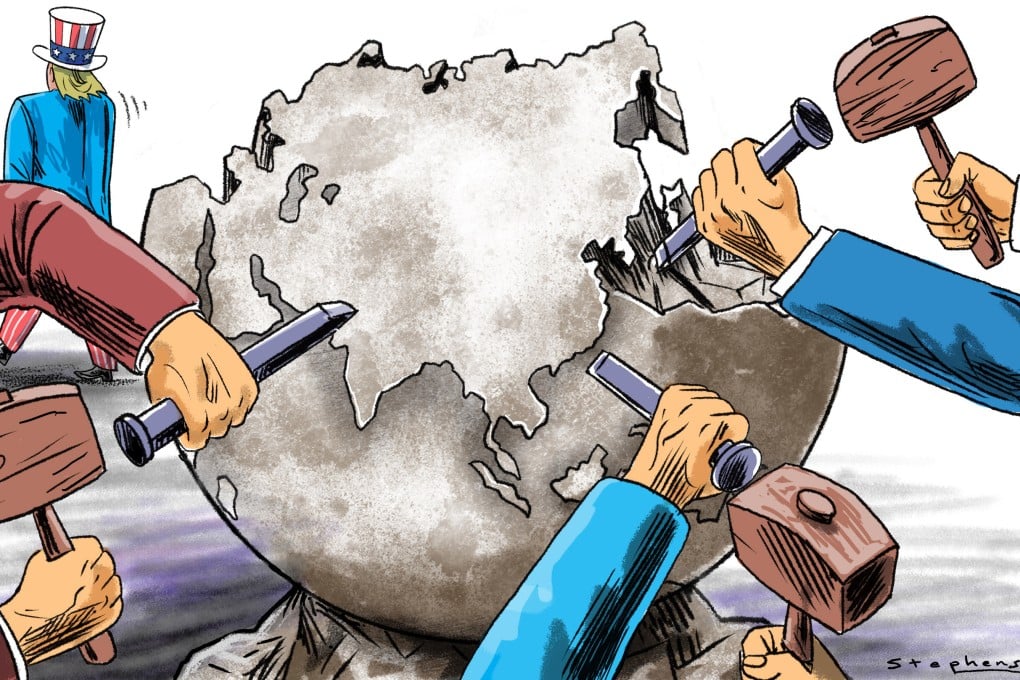Advertisement
Opinion | As US retreats, Asian powers can reshape world order to meet their needs
Global South countries, tired of bearing the costs of globalisation, are asserting their economic visions
Reading Time:3 minutes
Why you can trust SCMP
2

The global order that once promised free trade, open borders and shared prosperity has cracked. The so-called liberal international order, constructed after the second world war and turbocharged after the Cold War, is dissolving. Its collapse is being brought about by the very country that built it: the United States.
Under the Trump 2.0 administration, the US is decidedly stepping back from open markets and liberal values. Its immediate predecessor, Joe Biden’s administration, continued many of Trump 1.0’s economic policies – on trade protection and reshoring of supply chains.
There is now a bipartisan consensus in America that globalisation, at least in its past form, no longer serves US interests. Washington is no longer selling the dream of a borderless, liberal world. It is selling security, industrial policy and “Made in America” – so America will be great again. In this frame, even long-standing allies are foes.
Advertisement
To understand this shift, it helps to revisit Harvard economist Dani Rodrik’s trilemma, which explains why countries can’t simultaneously have full national sovereignty, deep economic globalisation and democratic politics – at best, they can have two. Much of the world, however, thought all three could coexist.
Faced with rising inequality, the hollowing out of its manufacturing base and a restless electorate, the US has chosen populist democracy and sovereignty over globalisation. The original champion of open markets is rewriting the rules to protect its industries. Free-market rhetoric is giving way to strategic competition, especially against a China that has become the world’s major industrial economy.
Advertisement
But as the US steps back, others are stepping forward on their own terms. The Brics bloc, once dismissed as a loose coalition of developing economies including Brazil, Russia, India and China, is evolving into something far more ambitious.
Advertisement
Select Voice
Choose your listening speed
Get through articles 2x faster
1.25x
250 WPM
Slow
Average
Fast
1.25x
